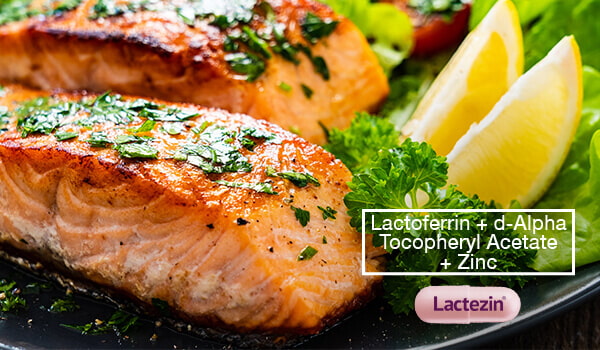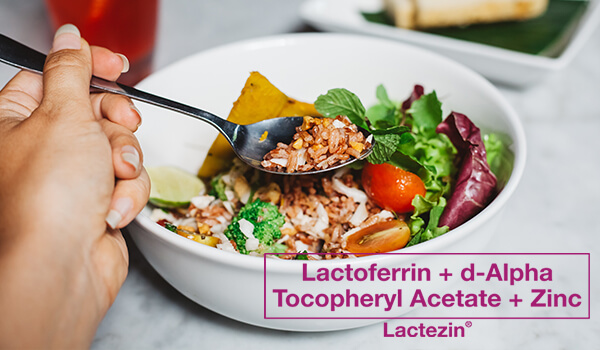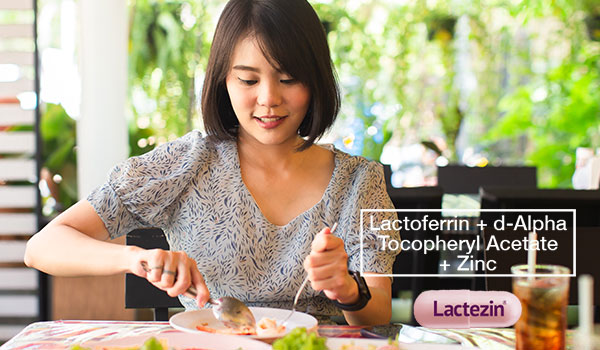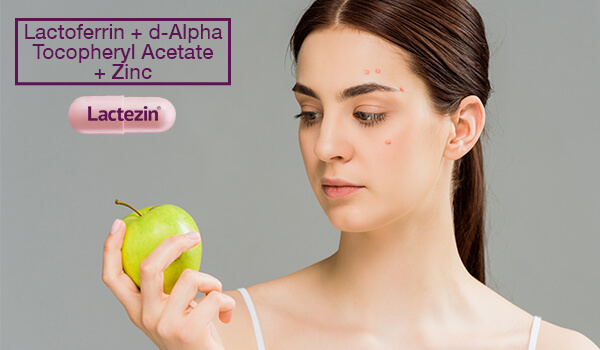Best Foods for Acne-Prone Skin

Skincare goes beyond what you put on your skin. It’s also about what you consume. Read more on how you can eat your way to healthy skin with less pimples, blackheads and whiteheads.
But First, Do You Have Acne-Prone Skin?
Knowing your skin type helps in building a skincare routine that brings out the best in your skin’s health and appearance. Acne-prone skin refers to a skin type that’s easily and frequently affected with pimples, blackheads, whiteheads and other types of acne. Commonly associated with the oily type, caring for acne-prone skin will require more than just putting on acne-fighting skin care products. It can involve lifestyle changes such as tweaking your daily meals to include healthier food.
What’s on the Menu: Foods for Healthier Skin
It’s important to know that food alone can’t cause acne. However, munching on snacks that cause blood sugar to spike may encourage breakouts. The simple science behind is that when blood sugar rises quickly, a regulating hormone called insulin is released. Too much insulin in the bloodstream stimulates the production of sebum (oil), which increases the risk of acne.
Steer clear of high-glycemic carbohydrates such as pasta, white rice, white bread and sugar. Instead, snack on greens and fruits that naturally reduce inflammation, boost collagen formation, and counter environmental toxins. Check out this short list of healthy options for the skin:
- Berries
Rich in vitamin C and antioxidants, berries such as strawberries, raspberries, blueberries, and cherries prevent blemishes while lightening dark spots. They’ve also been found to help improve brain health, lower cholesterol, keep blood sugar levels healthy and reduce the risk for heart disease and diabetes. - Kale
One of the most nutrient dense in the cabbage family, kale is a high fiber, low-calorie superfood that’s packed with antioxidants, vitamins and minerals. Aside from minimizing acne, its benefits for the skin include optimizing cell turnover rate and promoting collagen production. - Legumes
Not only are they great for extra texture on dishes, but legumes such as chickpeas, kidney beans, lentils and peanuts are low-glycemic. Remember: consistent blood sugar levels minimizes the occurrence of acne flare-ups. - Lemon
You’re likely to find lemon in articles about natural skincare and DIY beauty hacks. While it’s true that its juice is packed with a number of benefits for the skin, experts do not recommend using it raw and as a topical treatment. Fresh lemon juice is too acidic and may even cause damage to your skin’s natural protective barrier. A better way to reap the benefits is through drinking it. Did you know that a cup of fresh lemon juice, mixed with warm water, first thing every morning helps minimize fine lines, wrinkles and conditions the skin to be radiant. - Papaya
Thanks to a digestive enzyme called papain, papaya is known for its handful of benefits for the skin. On the skin’s surface, papain helps exfoliate dead skin cells, unclogs pores, lightens acne scars, moisturizes, and prevents breakouts. On the other hand, when consumed, papaya’s nutrients improve skin elasticity, helping prevent the appearance of fine lines and wrinkles. It also has vitamin A which can help treat and prevent inflammatory acne. - Pumpkin
Packed with fruit enzymes, zinc and alpha hydroxy acids, pumpkin helps soften skin and restore its pH balance. Internally its zinc content is a big hand in keeping the skin’s oil production in check. - Salmon
Salmon with the skin is a great source of antioxidants, protein, B vitamins and a healthy fat called Omega-3 fatty acids. Omega-3 fatty acids lower inflammation in the body, preventing acne. - Sweet Potatoes
Beta-carotene, or retinol in its original form, can be found in sweet potatoes. Once consumed, the body processes this nutrient and converts it into vitamin A which has anti-inflammatory properties, among other benefits.
So, can you eat your way to healthier, clearer skin? Yes! Supplement your daily skincare routine with regular balanced meals of fresh fruits, greens, healthy protein sources and whole grains.
Lactezin: Anti-Acne Support
Just as how it can’t cause acne, food alone can’t prevent acne. Finding extra support in getting the nutrients you need for healthier skin helps. Lactoferrin + d-Alpha Tocopheryl Acetate + Zinc (Lactezin) is an anti-acne oral drug that helps treat acne, as well as prevent breakouts with the combined benefits of lactoferrin, vitamin E and zinc. It helps keep bacteria out, while regulating sebum production and improving skin cell renewal.
Just take two capsules daily, one in the morning and one at night, and preferably with 8-14 hours apart. With proper and regular intake, results should be noticeable in as early as 2 weeks.
Read more features on skin care, skin types and managing different types of acne with expert tips and advice from Lactezin. Lactoferrin + d-Alpha Tocopheryl Acetate + Zinc (Lactezin) is available in all leading drugstores nationwide. You may also purchase online through Lazada and Shopee.
SOURCES:
https://www.everydayhealth.com/acne-pictures/acne-diet-dos-and-donts.aspx
https://www.healthline.com/health/anti-acne-diet
https://www.healthline.com/health/beauty-skin-care/anti-acne-foods


